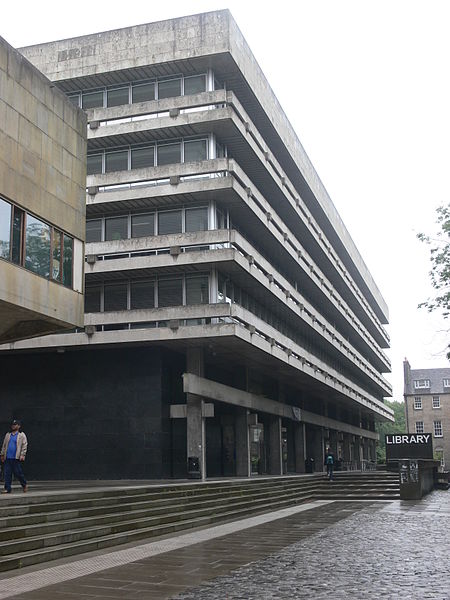A TOP Scottish university is installing movement sensors in the library to stop selfish students hogging desks.
Edinburgh University is fitting desks with the devices which can monitor movement, temperature and light.
The institution has been plagued with complaints that much sought-after desks are being monopolised by students who leave their books and bags and then disappear for much of the day.
The OccupEye gadgets are clever enough to work out the difference between a desk which is actively being used and one getting the academic equivalent of a towel on a sunbed.
The move has been welcomed by many students who struggle to find room in the main library, which has about 2,300 desks for 23,000 undergraduates and a further 13,000 postgraduates.

But others have criticised the move as a “violation” of privacy.
The sensors are roughly the size of a computer mouse and are placed underneath the desk.
The system is backed up by “smart cushions” on desks in certain rooms which do exactly the same job.
The university asks students not to leave a desk unattended for longer than half an hour. The university’s computers lock after this point but many students get round this simply by using their own laptop.
The new sensors pass information about a “hogged” desk to library staff. A warning note is placed on the desk, which is then considered “fair game” for another student to occupy.
Students have given a mixed reaction to the introduction of the sensing system.
Fanny Perdu wrote: “Finally, no more saving spaces.”
Ella Keating added: “Thank the lord.”
Others were less welcoming. Elise Cranfield wrote: “What no I feel violated.”
Jonathon Tija said: “Bye bye two hour toilet break.”
Edinburgh University said: “This encourages the user behaviour of reserving spaces by leaving possessions at a vacant study desk which the Library.
“Utilising the space effectively is very important and means more students get to study in their preferred environment.”
Earlier this year, it was reported that firms including the Boston Consulting Group and Gensler were using similar devices to monitor employees.
The Boston Consultancy group issued badges with a microphone and location sensor to see how office design affected employee communication.
Gensler, an office-design company based in New York, has admitted they place sensors in light-fittings, to detect motion and give information on employee behaviour patterns.
A university spokeswoman added: “Finding a place to work is of vital importance to library users, and we have been working closely with students improve their experience.
“We are pleased to have increased study spaces by almost 20% over the past year, however pressure points still remain. Monitoring will help students to find vacant desks in the library more easily and deter people from reserving spaces.
“All data collected is anonymous.”


